RUNNING UPDATES ON THE CONFLICT IN UKRAINE - 06.04.2024
Including geopolitical issues affecting the balance of power in the ongoing end game war to establish our common future, a closely monitored prison planet or tolerance for diverse modes of governance.
THE ROAD TO THE ULTIMATE CONCLUSION OF WORLD WAR III RUNS THROUGH HERE.
*** RUSSIA’S APPROACH TO OUTRIGHT VICTORY GAINS SPEED ***
“Ukraine. What is the truth...?
Why won’t western media tell both sides…?”
VIRTUALLY UNREPORTED ATROCITY IN LUGANSK, 2nd JUNE 2014
A lot has been said about atrocities in the western media claimed to have been perpetrated by the Russians, for example at Bucha and Mariupol among others. These assertions are conveyed on the say so of the Ukrainian authorities. How willing though are western news broadcasters to convey atrocities attributed to the Ukrainians? The following will I think provide the answer.
If anyone wonders if they are receiving accurate coverage of the conflict in Ukraine I would suggest watching the video below of an event which occurred on the 2nd of June 2014 and ask themselves if they recall hearing about it on any mainstream media news channel at the time.
The video is harrowing to watch. The bodies (five women and three men) are real. Yet across western media there was only one single news report that occurred a day later. This was from CNN and occurred only because a CNN team happened to be nearby at the time of the atrocity and so the network could hardly ignore it as all others so obviously did.
The video below shows the unvarnished truth that was not considered newsworthy in western mainstream news.
THE SINGLE WESTERN MSM REPORT ON THE LUGANSK ATROCITY, 3rd JUNE 2014
The video at the CNN link below is the crime scene sanitised by CNN, though played straight with honest reporting on the scene not playing things to Kiev’s tune.
(There was a time early in the war in the Donbass when CNN were not afraid to contradict the Ukrainian regime in Kiev.) Watch, because it's the first and last time you will see this.
5 women and 3 men died, all civilians.
Air attack on pro-Russian separatists in Luhansk kills 8, stuns residents.
COLLECTIVE WEST-UKRAINE <-> RUSSIA
The Bloom | The Eastern Chasiv Yar | Kharkiv To Be Next. Military Summary And Analysis For 2024.04.6
ALEXANDER MERCOURIS of THE DURAN: Rus Storms Chasov Yar, Zelensky No Good Options; China: US Trapped Ukr, US Edgy Iran Attack Israel.
ALEX CHRISTOFOROU of THE DURAN: Iran retaliation coming? NYT: NO NATO for Ukraine. Blinken cope; China saved Russia from TATTERS.
ALEX CHRISTOFOROU & ALEXANDER MERCOURIS of THE DURAN: France wants conflict freeze. Russia said NO.
The Russians Began Using Kalibr Missiles | Chasiv Yar Is On Verge. Military Summary For 2024.04.06
NATO faces ‘catastrophic defeat’ in Ukraine – ex-Pentagon adviser.
Strategist Edward Luttwak has argued that members of the US-led bloc will have to deploy troops to prevent a Russian victory.
NATO nations can only forestall an inevitable loss to Russian forces in Ukraine by deploying their troops to the former Soviet republic, a former adviser to the US military has claimed.
“The arithmetic of this is inescapable: NATO countries will soon have to send soldiers to Ukraine, or else accept catastrophic defeat,” military strategist Edward Luttwak wrote in an oped published on Thursday by the British online media outlet UnHerd. “The British and French, along with the Nordic countries, are already quietly preparing to send troops – both small elite units and logistics and support personnel – who can remain far from the front.”
The conflict can’t be won without direct troop deployments because regardless of the quantity and quality of weapons sent to Kiev, Ukrainian forces are too outnumbered by the Russians, Luttwak argued. “This means that unless [Russian President Vladimir] Putin decides to end the war, Ukraine’s troops will be pushed back again and again, losing soldiers in the process who cannot be replaced.”
Read more: NATO is an American tool for confrontation in Europe – Kremlin
Luttwak’s comments follow weeks of battlefield advances by Russian forces in the Donbass region. Western leaders have insisted that they can ensure a Ukrainian victory by providing aid to Kiev, but French President Emmanuel Macron suggested in February that direct troop deployments by NATO members could not be ruled out.
European NATO members face a “momentous decision” because with US forces facing a growing threat of a potential Chinese attack on Taiwan, it will be up to them to provide the manpower that Ukraine needs, Luttwak said. “If Europe cannot provide enough troops, Russia will prevail on the battlefield, and even if diplomacy successfully intervenes to avoid a complete debacle, Russian military power will have victoriously returned to central Europe,” he added.
NATO-Russia relations have deteriorated so much amid the Ukraine crisis that the Western alliance is already in “direct confrontation” with Moscow, Kremlin spokesman Dmitry Peskov said on Thursday. Putin has warned that NATO would risk triggering a nuclear conflict if its members send troops to Ukraine.
READ MORE: ‘Take no NATO prisoners’ – Medvedev
Luttwak suggested that by providing support troops for such tasks as troop training and repairing damaged equipment, NATO nations could free up more Ukrainians to serve on the front lines. “These NATO soldiers might never see combat, but they don’t have to in order to help Ukraine make the most of its own scarce manpower,” he said.
The Romanian-born Luttwak, who was raised and educated largely in the UK, has advised the Pentagon, the US State Department, and the White House National Security Council, among other entities in Washington. A December 2015 profile of Luttwak by The Guardian billed him as “the Machiavelli of Maryland.” Now 81, he has reportedly advised clients ranging from the Dalai Lama to the prime minister of Kazakhstan.
READ MORE: Ukraine ‘will become a member of NATO’ – top US diplomat
Despite being a proponent of Western involvement in the conflict, Luttwak was put on a Ukrainian blacklist in 2022 for opining that Kiev cannot realistically hope to defeat Russia outright and depose Putin.
NATO faces ‘catastrophic defeat’ in Ukraine – ex-Pentagon adviser.
Putin's Troops Capture Ukrainian Army's Lone 'Wonder Weapon' After Locals Reveal Location - Report.
Russian Foothold In Chasiv Yar | In Depth Situational Analysis & What's Next.
LEVAN GUDADZE: Ukraine in NATO with territorial compromises, ZNPP, Disintegration of Moldova, Ecuador vs Mexico...
Two Weeks After The Moscow Terror Attack: What Do We Know About ISIS-K and The CIA's Footprint?
Who led Islamic State operatives to Moscow & how Hitler, Stalin, CIA all helped pave the road.
Wagner To Fight For Russia Again; Kadyrov Welcomes Prigozhin's Men In Akhmat Special Forces.
EMIL COSMAN: 3,000 Wagner Mercenaries join Kadyrov's Akhmat Special Forces. To enter Georgia, Armenia or Ukraine?
PROFESSOR JEFFREY SACHS: Jeffrey Sachs EXCORIATES Biden On Ukraine- Russia War.
THROUGH THE EYES OF… ANIA: "NEW NATO MISSION, THAT DOESN'T MEAN WE ARE ENTERING THE WAR", SIKORSKI. RUSSIA ABOUT FINLAND & NATO.
About NATO's war with Russia in cyberspace! Zakharova, Ukraine.
‘NOW OR NEVER’
Professor Geoffrey Robert’s paper below, provides a timeline for the many discussions and decision-making processes which led to the initiation of Russia’s ‘Special Military Operation’ on the 24th of February 2022.
It seems to me, as the conflict in Ukraine reaches a decisive moment, it is an opportune moment to gain a fuller and deeper understanding of the reasons why Russia’s special military operation was deemed so necessary if not absolutely vital.
In the West politicians and legacy media editors/commentators give the impression that Vladimir Putin took initiating the military campaign against the Ukrainian regime lightly.
On reading through Professor Robert’s paper below I am sure you will understand how very far from the truth this is.
‘Now or never’: Putin’s Decision for War with Ukraine.
Geoffrey Roberts
Emeritus Professor of History, University College Cork
Preventative War
On the eve of the invasion of Ukraine on 24 February 2022, many astute and well-informed commentators convinced themselves that the supposedly realistic and pragmatic Putin would not risk an attack. Why, they asked rhetorically, would he undertake such a dangerous and risky operation, when his militarised diplomacy had already gained so much: Faced with the threat of a Russian invasion of Ukraine, the world had taken notice of Putin’s security concerns, the west had agreed to talk with Moscow about them and during the ensuing negotiations had made some significant concessions. Moreover, with 150,000 Russian Federation troops massed on its borders, Ukraine was no immediate military threat to the Donbass, let alone Russia.
What these commentators missed was Putin’s apocalyptic vision of a future nuclear-armed Ukraine embedded in NATO and intent on provoking a Russian-Western war. From this perspective, going to war to stop Ukraine from becoming yet another NATO bridgehead on Russia’s borders was not a difficult decision to make. As is often the case in decision-making processes that result in drastic military action, the hard option, the statesmanlike choice, would have been for Putin to persist with diplomacy and accept the risks of remaining at peace with Ukraine.
If the public record is to be believed, Putin felt he had no choice but to wage a preventative war against Ukraine. Much like Kaiser Wilhelm II and his advisors in July 1914 when they urged Austria-Hungary to crush the Serbian threat to their empire before it was too late, Putin concluded that it was ‘now or never’ – invade Ukraine before NATO’s position in the country became too strong to risk war. And the hard fighting of the actual war with Ukraine can only have reinforced that calculation of Putin’s.
A better understanding of Putin’s calculations may help to clarify how this calamity could have been averted and how an even greater catastrophe could be prevented.
Militarised Diplomacy
My starting point for this analysis is Putin’s meeting with leading Russian diplomats on 18 November 2021. His speech to an expanded session of his foreign ministry’s Board previewed the new version of Russia’s Foreign Policy Concept, a document then being drafted. His remarks ranged across varied topics - coronavirus, climate change, economic and security issues, Sino-Russian relations – but contained no surprises except that when speaking about Ukraine he turned to his Foreign Minister, Sergey Lavrov, and said: “It is imperative to push for serious, long-term guarantees that safeguard Russia’s security in this direction because Russia can’t be constantly thinking about what could happen there tomorrow”.
In making this point, Putin reiterated longstanding and repeated Russian complaints about NATO expansion and Ukraine’s failure to implement the Minsk agreements on the conditional return of Donetsk and Lugansk to Ukrainian sovereignty. He also highlighted western supplies to Ukraine of modern lethal weapons, NATO’s military manoeuvres close to Russia’s borders, and the deployment of American anti-missile defence systems in Romania and Poland, which he claimed could easily be adapted for offensive purposes.
Putin restated his demand for security guarantees at a December 1st ceremony welcoming new ambassadors to Moscow:
“The threat on our western border is really growing, and we have mentioned it many times. It is enough to see how close NATO military infrastructure has moved to Russia’s borders. This is more than serious for us. In this situation, we are taking appropriate military-technical measures… While engaging in dialogue with the United States and its allies, we will insist on the elaboration of concrete agreements that would rule out any further eastward expansion of NATO and the deployment of weapons systems posing a threat to us in close proximity to Russia’s territory. We suggest that substantive talks on this topic should be started. I would like to note in particular that we need precise, legal guarantees, because our Western colleagues have failed to deliver on verbal commitments. Specifically, everyone is aware of assurances they gave verbally that NATO would not expand to the east. But they did absolutely the opposite. In effect, Russia’s legitimate security concerns were ignored and they continue to be ignored in the same manner.”
The next day, in Stockholm, at a meeting of the OSCE Ministerial Council, Foreign Minister, Sergey Lavrov announced that Russia would soon present its proposals on halting NATO’s further eastward expansion. “Absolutely unacceptable”, he told the meeting, is “the transformation of our neighbouring countries into a bridgehead for confrontation with Russia and the deployment of NATO forces in the immediate vicinity of areas of strategic importance to our security”.
At a video conference with Joe Biden on 7 December, Putin again demanded reliable, legal guarantees that would halt NATO’s expansion, while the US President protested the continuing building up of Russian military forces along Ukraine’s borders.
According to later claims by Putin, it was this meeting with Biden that prompted Moscow to formulate the written proposals on security guarantees presented to the United States on 17 December, and subsequently to NATO. These demanded a formal end to NATO ‘s expansion and restrictions on western deployments of troops and weaponry in Eastern Europe.
On December 21st, Putin told an expanded meeting of his Defence Ministry’s Board that it was “extremely alarming that elements of the US global defence system are being deployed near Russia…If this infrastructure continues to move forward, and if US and NATO military systems are deployed in Ukraine, their flight time to Moscow will be only 7-10 minutes, or even five minutes for hypersonic systems”. Russia required legal guarantees, said Putin, not verbal assurances that NATO expansion would stop, because “fine words and promises” had not halted five waves of the western bloc’s eastward expansion. If western states persisted with their policies, Russia would “take appropriate military-technical measures and will have a tough response to their unfriendly steps.”
Two days later, at his annual press conference, Putin’s ire was directed at Ukraine, accusing Kiev of creating an ‘anti-Russia’ on its territory and of contemplating military action to retake control of Donetsk and Lugansk: “Under cover of new weapons systems radicals may well decide to settle the Donbass issue, as well as the Crimean issue, by military means.”
Responding to a direct question from a foreign journalist as to whether he intended to invade Ukraine, Putin said that Russia’s actions would depend on the existence of unconditional guarantees of its security. Pressed by the same journalist on what the west didn’t understand about the Russian position, he said:
“You know, sometimes I get the feeling that we live in different worlds. They told us there would be no expansion but they expanded. They promised us equal guarantees but this equal security has failed to materialise. In 1918 an aide to President Woodrow Wilson said it would be a relief for the entire world if instead of one huge Russia, there was a separate state in Siberia and another four in Europe. In 1991 we divided ourselves into 14 but it seems even this was not enough for our partners. They believe that Russia is still too big, even after the Soviet Union collapsed, and we were left with just 146 million people. I believe this is the only way to explain their unrelenting pressure.”
On the other hand, Putin did note the generally positive western response to the idea of discussions about Russia’s security proposals: “Our American partners are telling us that they are ready to launch this conversation by starting talks early next year in Geneva. Both sides have appointed representatives. I hope that the situation develops in this very direction.”
Failed Negotiations
During January there was some negotiating progress on arms control measures and on Russia’s demand that the rights of states to join military alliances should be balanced by the ‘indivisibility of security’ i.e. that sovereign decisions should not endanger the security of other countries. However, on January 26th the west rejected Russia’s central demand for a written guarantee that Ukraine would not join NATO.
Putin was bitterly disappointed. At a joint press conference with Hungary’s Premier, Victor Orban, on February 1st, he complained that “fundamental Russian concerns” were being ignored. Asked how he would respond to this situation, Putin replied:
“Listen attentively to what I am saying. It is written into Ukraine’s doctrines that it wants to take Crimea back, by force if necessary. This is not what Ukrainian officials say in public. This is written in their documents. Suppose Ukraine is a NATO member. It will be filled with weapons, modern offensive weapons will be deployed on its territory just like in Poland and Romania – who is going to prevent this. Suppose it starts operations in Crimea, not to mention Donbass. Crimea is sovereign Russian territory. We consider this matter settled. Imagine that Ukraine is a NATO country and starts these military operations. What are we supposed to do? Fight against the NATO bloc? Has anyone given at least some thought to this? Apparently not.”
He then claimed that, “The United States is not that concerned about Ukraine’s security. Its main goal is to contain Russia’s development. This is the whole point. In this sense, Ukraine is simply a tool to reach this goal. This can be done in different ways: by drawing us into some armed conflict, or compelling US allies in Europe to impose tough sanctions on us…or by drawing Ukraine into NATO, deploying attack weapons there and encouraging some Banderites to resolve the issues of Donbass or Crimea by force… We need to find a way to ensure the interests and security of all parties to this process: Ukraine, the other European countries and Russia. But this can only be done if the documents we proposed undergo a serious, thoughtful analysis.”
On February 4th, Putin travelled to Beijing for the opening ceremony of the Winter Olympics. While there he signed a Chinese-Russian statement on the “new era of international relations”. The document did not mention Ukraine, even in passing, but it did state:
“Russia and China stand against attempts by external forces to undermine security and stability in their common adjacent regions, intend to counter interference by outside forces in the internal affairs of sovereign countries under any pretext…The sides oppose further enlargement of NATO and call on the North Atlantic Alliance to abandon its ideologized cold war approaches, to respect the sovereignty, security and interests of other countries…The Chinese side is sympathetic to and supports the proposals put forward by the Russian Federation to create long-term legally binding security guarantees in Europe.”
On February 7th, in Moscow, Putin met French President Emmanuel Macron. The two men spoke for nearly six hours and at their follow-on press conference Putin rehearsed at length the Russian view of the roots of the current crisis: NATO expansion, Kiev’s failure to implement the Minsk agreements, NATO and the US’s aggressive character (Serbia, Afghanistan, Iraq, Libya, Syria), and Ukraine’s domestic discrimination against Russian speakers. Asked point blank if he intended to invade Ukraine, Putin replied:
“We are categorically opposed to NATO’s eastward expansion…It is not us moving towards NATO but NATO moving towards us.” He also reiterated the point that Ukraine’s membership of NATO was dangerous because at some point in the future it might attempt to reoccupy Crimea and the Donbass by force and thereby spark a broader Russian-Western conflict. Asked what he would do next, Putin said that Russia would draft a response to the documents it had received from NATO and Washington. He characterised the western documents as full of ‘political clichés and proposals concerning minor issues” but did not think the dialogue would end there.
On February 12th, Putin spoke to Macron on the telephone and “once again drew attention to the absence of a substantive response from the United States and NATO to the Russian initiatives” and also stressed “the reluctance of the leading western powers to prompt the Kiev authorities to implement the Minsk agreements.”
In a televised meeting with Lavrov on February 14th, Putin asked his foreign minister: “Do you think we still have a chance of coming to terms with our partners on the key problems of our concern or is this simply an attempt to drag us into an endless negotiating process with no logical conclusion?”
“I must say that there is always a chance”, replied Lavrov. “I think our opportunities are far from exhausted. Of course, [the negotiations] should not be endless, but I think we should still continue to pursue and build on them at this point.”
The next day, Olaf Scholz, the new German Chancellor, arrived in Moscow for talks. At their joint press conference Putin said that Russia’s security proposals were a package and all the fundamental issues needed to be negotiated together. In other words, as far as he was concerned, a formal end to NATO expansion remained integral to the discussion. Asked about the Russian State Duma’s request that he recognise the independence of Donetsk and Lugansk, Putin indicated that he felt a solution within the Minsk framework was still possible, providing the French and German signatories to the agreements brought their influence to bear on Kiev.
Lavrov handed the official Russian response to the western counter-proposals of late January to the US ambassador in Moscow on 17 February. The document warned, once again, that in the absence of legally binding security guarantees, Russia would resort to “military-technical means”. Was this a genuine diplomatic demarche or had Putin already taken the decision for war?
Decision for War
The final trigger for war may have been President Zelensky’s defiant speech to the Munich Security Conference on February 19th, in which he threatened Ukrainian re-acquisition of nuclear weapons.
Another crucial contingency was a significant increase in the number of ceasefire violations along the border between Donetsk and Lugansk and Kiev-controlled Ukraine. During the period 17th-21st February there were hundreds and then thousands of explosions and other ceasefire violations. Needless to say, both sides blamed each other for the escalation. Maybe, as the Ukrainians claimed, this was a deliberate provocation by the Donbass rebels, but as David C. Hendrickson pointed out, the great majority of the shelling originated from the Ukrainian side of the ceasefire line. Whoever was responsible, it added greatly to the tension at a critical moment.
According to the UN High Commissioner for Human Rights, during the 8-year (2014-2021) conflict between Kiev and the Donbass separatists there were an estimated 51,000-54,000 war-related casualties, of which 14,200-14,400 were fatalities, including at least 3,404 civilians.
February 21st saw Putin convene a televised meeting of the Russian Federation’s Security Council to advise him how he should to respond to a communist-sponsored Duma resolution calling for recognition of the independence of the People’s Republics of Donetsk and Lugansk. A council recommendation in favour of recognition was a foregone conclusion but the discussion was less staged and more open than the impression given by western media reporting, suggesting that while Putin himself may have already made up his mind to go to war he had yet to tell his government.
In his preliminary remarks Putin once again stressed the danger that Ukraine would eventually become a member of NATO and then stage an attack on Crimea that would draw Russia into a broader conflict with the western alliance.
Lavrov spoke first and reported that while the west had rejected Russia’s major proposals and arguments, there had been some progress in talks about reducing military tensions. Putin’s Deputy Chief of Staff, Dmitry Kozak, then spoke about the futility of the Minsk agreement discussions with Ukraine, France and Germany: Ukraine did not want the Donbass back on Minsk’s terms of regional autonomy, and western states were more than happy for the situation to remain a ‘frozen conflict’.
Alexander Bortnikov, Head of the Federal Security Service, reported on intensified Ukrainian shelling of Donetsk and Lugansk, as did Defence Minister Sergey Shoigu, who added that Ukraine had concentrated nearly 60,000 troops on its border with the two breakaway republics. Sounding the alarm about the prospects of Ukraine acquiring nuclear weapons, Shoigu asserted that its equipment, technology and specialist knowledge were far greater than those of Iran and North Korea. He also pointed to ‘radical nationalist battalions’ scattered across Ukraine and saw signs they were “preparing to deal with the Donbass issue with the use of force”.
Former President, Dmitry Medvedev, made a comparison with his 2008 decision to recognise the independence of Abkhazia and South Ossetia following the short-lived Georgian-Russian war of that year. The situation today was more complicated, admitted Medvedev, but also simpler because Russia now knew that it could withstand the western sanctions that would inevitably result if it recognised Donets and Lugansk. In any event, Russian-Western tensions would eventually subside, and discussions about strategic security issues would resume. Medvedev even quoted the Russian writer Mikhail Bulgakov’s aphorism: never ask for anything, they will come to you themselves and offer everything. In his contribution, Duma Chair, Vyacheslav Volodin, pointed out that the resolution to recognise the independence of Donetsk and Lugansk had been supported by 351 out of 450 members of parliament, while Chair of the Federation Council, Valentina Matviyenko, spoke of the unfolding “humanitarian catastrophe” in the Donbass.
The Secretary of the Council, Nikolai Patrushev, was convinced the Americans wanted to “collapse” the Russian Federation but he still favoured another summit with President Biden in order to allow one last chance to implement the Minsk agreements. In a highly revealing statement, Prime Minister Mikhail Mishustin said that he and his government, anticipating recognition of the DPR and the LPR, had been “preparing for months” its response to possible western sanctions.
Sergey Naryshkin, the Director of Foreign Intelligence, claimed the “thesis” that Russia plans to invade Ukraine was American war propaganda designed to provoke Kiev into yet another attempt to resolve the Donbass problem by force. Nevertheless, he, too, favoured one last approach to the United States. Questioned by Putin as to whether he favoured starting a negotiating process or recognising DPR and LPR sovereignty, Naryshkin stumbled and said he favoured incorporation of the two republics into Russia but corrected himself when Putin pointed out this was not the proposal on the table.
The final council speaker was Interior Minister, Vladimir Kolokoltsev, who proposed the two republics should be recognised within the administrative boundaries they had occupied before their split from Ukraine i.e. the greater Donbass area.
At the end of the meeting Putin asked Lavrov, Shoigu and Bortnikov to state formally if they favoured recognition. All answered in the affirmative, as did Viktor Zolotov, the head of the Russian National Guard, who accused the Americans of “rushing weapons to Ukraine and trying to create nuclear arsenals that will backfire on us in the future.”
A few hours later a visibly troubled and emotional Putin returned to the television screen to tell his compatriots that he had decided to recognise the independence of Donetsk and Lugansk and to sign mutual assistance treaties with the two republics. His preceding address left little room for doubt that he had decided to go to war. The only question was how extensive and ambitious the military operation would be.
In analysing what appears to have been an extempore speech by Putin, some commentators have focused on the first half of the address in which he recapitulated and radicalised his previous statements on the history and nature of the Ukrainian state. Modern Ukraine, said Putin, was a creation of Lenin and the Bolsheviks, who had imposed arbitrary administrative borders that separated millions of Russians from their homeland and incubated a virulent Ukrainian nationalism. The Ukrainian state that emerged from the ruins of the USSR was corrupt and oligarchic and its statehood merely a cover for the pillage and exploitation of its people, claimed Putin. Urged on by foreign states, ultra-nationalists took advantage of justified public anger and staged the 2014 Maidan coup. Under cover of patriotism the Ukrainian state was then privatised and Kiev sought to root out Russian culture and language and repress Ukraine’s citizens who identified as ethnic Russians.
But perhaps a more important factor in Putin’s immediate decision for war -- as opposed to its deeper origins -- was his picture of Ukraine’s long-term military threat to Russia, and it was the spectre of a nuclear-armed Ukraine that loomed large:
“If Ukraine acquires weapons of mass destruction, the situation in the world and in Europe will drastically change, especially for us in Russia. We cannot but react to this real danger, all the more so since, let me repeat, Ukraine’s western patrons may help it acquire those weapons”
According to Putin, Ukraine’s de facto integration into NATO was already proceeding apace with the aim of establishing western military bases on Ukrainian territory. Putin noted that a number of western states were still very sceptical about Ukraine’s membership of the alliance but he maintained that even if Ukraine didn’t join NATO immediately it would do so in the future:
“The information we have gives us good reason to believe that Ukraine’s accession to NATO and the subsequent deployment of NATO facilities has already been discussed and is only a matter of time. Given this scenario, the level of military threats to Russia will increase dramatically. At this point the risks of a sudden strike on our country will multiply.”
Regarding the Donbass, Putin claimed that Kiev was trying to orchestrate a blitzkrieg against the region. Russia, said Putin, had done everything it could to preserve Ukraine’s territorial integrity but it was all in vain because, “Presidents and Rada deputies come and go, but deep down the aggressive and nationalistic regime in Kiev remains unchanged. It is entirely a product of the 2014 coup and those who then embarked on the path of violence, bloodshed and lawlessness did not recognise then and do not recognise now any solution to the Donbass issue other than a military one.”
The next day, Putin answered questions from Russian journalists about the recognition of Donetsk and Lugansk. One questioner wanted to know if Zelensky’s threat that Ukraine would re-obtain nuclear weapons was real or just talk?
Putin replied:
“We take it that these words were primarily addressed to us. I want to say that we have heard them. Ever since Soviet times, Ukraine has had fairly broad nuclear competencies, they have several nuclear power units and the nuclear industry is fairly well developed, they have dedicated schools, there is everything there to solve this issue much faster than in those countries which are solving matters from scratch… They only lack one thing – uranium enrichment systems. But this is a matter of technology, it is not unsolvable for Ukraine, it can be remedied quite easily. As to delivery vehicles, they have old Soviet-made Tochka-U missiles with a range of 110 kilometres. This is also not a problem in view of the competencies, say, at Yuzhmash, which used to manufacture intercontinental ballistic missiles for the Soviet Union. What is the threat to us? The appearance of tactical nuclear weapons in Ukraine is a strategic threat to us. Because the range can be extended from 110 kilometres to 300, to 500 – and that is it, Moscow will be in the strike zone. This is a strategic threat to us. And that is how we took it. We definitely must and will take it very seriously.”
A couple days later, on 24 February, in yet another televised address, Putin invoked a redolent historical analogy in defence of his decision to launch a pre-emptive strike against Ukraine. In 1940 and 1941, said Putin, the Soviet Union had gone to great lengths to prevent or at least delay war with Nazi Germany. To that end the USSR had restrained its preparations to meet Hitler’s attack and when Stalin finally did heed the advice of his generals, it was too late. “The attempt to appease the aggressor ahead of the Great Patriotic War proved to be a mistake which came at a high cost for our people. In the first months after hostilities broke out, we lost vast territories of strategic importance, as well as millions of lives. We will not make this mistake a second time. We have no right to do so.”
Shortly after, at a meeting with representatives of Russian business circles, Putin told the gathering:
“What is happening is a forced measure. There were simply no chances left for taking a different course of action. The security risks that had been created were so high that it was impossible to respond by other means. All attempts had come to nothing…This was a forced measure because risks could have created for us to the extent that it would have been impossible to conceive how our country could even exist in the future.”
In making his decision for war, many diverse factors must have featured in Putin’s thinking: global and local contexts, strategic and political calculations, historical and immediate experiences of his dealings with Ukraine and the west. While his fears about the consequences of a future nuclear-armed Ukraine may have been over-stated, the unfolding public narrative indicates this was the factor that tipped the balance of his calculations in favour of invading Ukraine, despite the possible costs of doing so.
ISRAEL-PALESTINE-IRAN-SYRIA-IRAQ-LEBANON-YEMEN-DPRK-TAIWAN
VANESSA BEELEY: Israel has lost the war in Gaza but wants to expand conflict.
Attacks across Gaza obstructing humanitarian aid.
Hezbollah's Chilling Threat To Israel; Nasrallah Says 'Our Main Weapons Unused And Ready For War'.
RICHARD MEDHURST: Iran to Retaliate Against Israel, Warns US to Move Aside.
Israel braces for potential attack after Iranian consulate strike.
'We're Hitting Israel': Iran's Biggest Confirmation; Tehran Tells U.S. 'To Step Aside' | Details.
'Swarm Of Drones, Cruise Missiles': Iran Approves Plan To 'Directly Attack' Israel; U.S. On Alert.
AFRICA
Niger Gives US Troops The Boot With No Notice.
NON-ENGLISH NEWS
В Ход Пошли Калибры | Продвижение ВС РФ По Всему Фронту. Военные Сводки И Анализ За 06.04.2024
Charkiv unter heftigem Beschuss - Blackout | Chasiv Yar Geländegewinne. Military Summary 06.04.2024
Charkiv unter heftigem Beschuss - Blackout | Chasiv Yar Geländegewinne. Military Summary 06.04.2024
MAPPING CHANNEL UPDATES
The Bloom | The Eastern Chasiv Yar | Kharkiv To Be Next. Military Summary And Analysis For 2024.04.6
The Russians Began Using Kalibr Missiles | Chasiv Yar Is On Verge. Military Summary For 2024.04.06
VICTORY BELONGS TO RUSSIA: IT IS ONLY A MATTER OF TIME
Each day that passes makes a conclusive Russian victory in the Donbass and beyond more certain. As Russia bolsters her forces, and weaponry, those of Ukraine decrease. Russian forces gain ready access to rest and recuperation as troop numbers increase. The increasingly exhausted and demoralised Ukrainian troops have an ever decreasing prospect of such respite. This situation is likely to bring them to complete breakdown as Russia unleashes the firepower of the more modern and advanced weaponry that is arriving with the newly mobilised Russian troops.
The various Ukrainian offensives are now weak when confronted by the reinforced Russian lines. A few futile efforts achieve quite miserable results before fire reigns down on the Ukrainian troops and they are forced back to their starting positions.
And now, all this being said, we have arrived at the wet, and later, freezing conditions where these pathetic Ukrainian forces will be subject to myriad forms of abject misery with death and injury all around them while they lie sodden or frozen, abandoned to their fate by Kiev.
The pitiable young and old of Ukraine have been frogmarched to their deaths as cannon-fodder while the bestial elites of the collective West urge their "president" to add more to their number there at the gates of Hell and their doom. We must feel for the majority of them as they are not the Nazis we revile, in most part they are decent men, fathers, sons, brothers, husband and uncles, who no doubt saw through the coup of 2014 for what it was. But sadly, their fate seems sealed.
Nothing will stop Russia now. Every factor favours them. Victory will be Russia's. In Donbass and beyond and in due course across the world.
Victory belongs to Russia: It is now only a matter of time.
UPDATES TO BE ADDED HERE AS AND WHEN THEY BECOME AVAILABLE OVER THE NEXT 24 HOURS.
UPDATES TO BE ADDED HERE AS AND WHEN THEY BECOME AVAILABLE OVER THE NEXT 24 HOURS.
ZELENSKY GAMBLED ON THE WEST’S PLAN FOR RUSSIA, NOW HE & THEY MUST COUNT THE COST
In the first few days of Russia’s special military operation in Ukraine Volodymyr Zelensky recognised the full might of the Russian military and got scared. He apparently called seeking help in re-establishing peace. Russia had finally, after almost a decade of being pressured into mounting its operation by the West, lost all patience recognising that the Ukrainian military was poised to attack the Russian-speaking population in eastern Ukraine.
Almost immediately it was agreed between the two sides that peace negotiations should take place. These began in Gomel, Belarus and later moved to Istanbul, Turkey. The Ukrainian negotiators were surprised during the discussions with the Russians in Istanbul that their demands were surprisingly modest. In order for the fighting to stop Russia wanted an assurance that Ukraine would not join NATO. All other issues were to be discussed at a later date, some of them between the two leaders themselves.
The documents regarding these agreements were signed by both sides. More work needed to be done but the areas of agreement already established boded very well for the cessation of the conflict. Russia had never wanted this conflict and had worked, through the Minsk process in conjunction with the then leaders of France, Germany and Ukraine to find a way through to peace and reconciliation regarding the Russian-speaking majority. As we now know from statements made by Angela Merkel and the then president of Ukraine, Petro Poroshenko the entire process was a sham.
The western powers, along with the post-coup Ukrainian leadership were only using the Minsk process as a stalling tactic to give them time to build the Ukrainian military and its siege defences against the Donbass region where the Russian-speaking majority had their villages, towns and cities. The intent was clearly to, at a future date, continue the attacks against them even more ferociously than in the preceding years since 2014. Approximately 15,000 had died since that year when the Ukrainian military began their siege of the region.
In Istanbul in March of 2022 Russia hoped that agreements made with the Ukrainians would be made to stick where the Minsk Accords had not. Merkel and Poroshenko would not make their confessions about the sham nature of their approach to the Minsk Accords for another decade. Hopes were high that the surprising progress made in Istanbul would be fully firmed up to become a basis for a permanent ceasefire. However, it was not to be.
Soon after the hopeful signs in Istanbul emerged Boris Johnson, the then British prime minister arrived in the Ukrainian capital to meet with Zelensky. The precise details of what transpired are not known however, several prominent officials including the chief Ukrainian negotiator in Istanbul and Naftali Bennet, ex-prime minister of Israel.
From ‘Meduza’:
‘Davyd Arakhamia, leader of the Servant of the People faction in the Verkhovna Rada (Ukrainian parliament), who headed the Ukrainian delegation in spring 2022 negotiations with Russia, said that at the time, the Russian delegation had offered to end the war if Ukraine relinquished its aspirations to join NATO.’
‘Arakhamia added that Boris Johnson, U.K. prime minister at the time, arrived in Kyiv shortly after the delegation had returned from negotiations and encouraged Ukraine to keep fighting.’
From ‘Foreign Affairs’:
‘Russian and Ukrainian negotiators appeared to have tentatively agreed on the outlines of a negotiated interim settlement,” wrote Fiona Hill and Angela Stent. “Russia would withdraw to its position on February 23, when it controlled part of the Donbas region and all of Crimea, and in exchange, Ukraine would promise not to seek NATO membership and instead receive security guarantees from a number of countries.’
From ‘The European Conservative’:
‘Former Prime Minister of Israel Naftali Bennet, who led the country for the first several months of the Russo-Ukrainian war, has said the United States and its closest Western allies “blocked” his attempts to broker a peace agreement between the two East Slavic nations. ‘
‘Boris Johnson visited Kyiv in April 2022, urging Zelensky not to negotiate with Russia. According to a report from Ukrainska Pravda, he said even if Ukraine was ready to sign a deal with Russia, Kyiv’s Western backers were not.’
From ‘Ukrainska Pravda’:
‘Johnson’s position was that the collective West, which back in February had suggested Zelenskyy should surrender and flee, now felt that Putin was not really as powerful as they had previously imagined, and that here was a chance to "press him."’
Thus an opportunity to move the peace negotiations forward was lost and Russia, left with no other option, continued its campaign. Subsequently Zelensky went further, passing a law expressly forbidding any negotiations with Russia. This has presented the main barrier to talks ever since despite the Russian side expressing a willingness to engage in them.
Since Boris Johnson’s visit to the Ukrainian capital to call a halt to negotiations almost half a million Ukrainian troops have left the battlefield either dead or wounded.
Now, over two years later it is becoming clear and even admitted across the western legacy media that Zelensky’s gamble to continue fighting Russia rather than agree to its modest terms established right at the start of the conflict, has ended in abject failure. The idea that the Ukrainian regime would take back all territory lost has been abandoned with Zelensky saying he would accept the loss of Crimea and the two breakaway republics. The secondary justification for fighting on, to gain a better negotiating position in whatever peace negotiations take place is also now seen to be a failure. Russia is steadily taking more territory with the Ukrainian army steadily weakening.
Zelensky’s gamble in 2022 and of course his love affair with the western powers that started years earlier as he began his presidency have failed entirely to pay off. The blood and treasure that his gamble has cost Ukraine have been enormous. With virtually half a million dead, millions who have flown the country, an economy in ruins and with a dependency on outsiders to pay for almost all governmental costs Ukraine is in the direst of straits. Any new money arriving now will arrive too late to save Zelensky or the benighted,much reduced population he now presides over.
Zelensky handed Ukraine’s sovereignty over to outsiders in the USA, UK and EU and there appears to be little prospect it will ever be retrieved. Even now, with a Russian offensive seemingly imminent and the Russian army making ever greater progress taking more and more territory each day, there could still be a call made to Vladimir Putin asking for negotiations to take place. Putin has repeatedly said he is open to this. However, Ukraine’s sponsors across the western world continue to say that now is not the time for negotiations but that the Ukrainian army must fight on.
Increasingly, officers and men within the Ukrainian army are stating unequivocally that there is no way they can win against overwhelmingly stronger and better equipped Russian forces. Yet the rhetoric from the West remains the same, “Fight on” even as the number of casualties among the Ukrainians triples from this time last year reaching a new average of around 1,000 dead and injured per day. Meanwhile, Russians are volunteering to join the Russian army at a rate around 1,400 per day. Ukraine has no hope of achieving ANY of the goals its regime set for it. The final outcome is clear, the Ukrainian regime with Zelensky at its head, along with the western politicians who have continually promoted war at the expense of peace plus an ever-belligerent NATO are all going down to utter humiliation.
ZELENSKY GAMBLED ON THE WEST’S PLAN FOR RUSSIA, NOW HE & THEY MUST COUNT THE COST

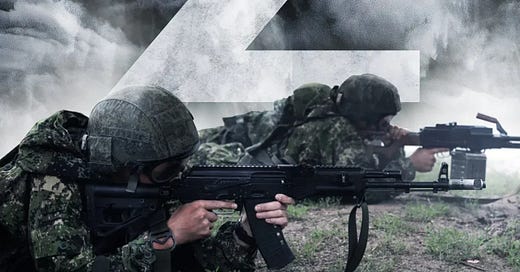



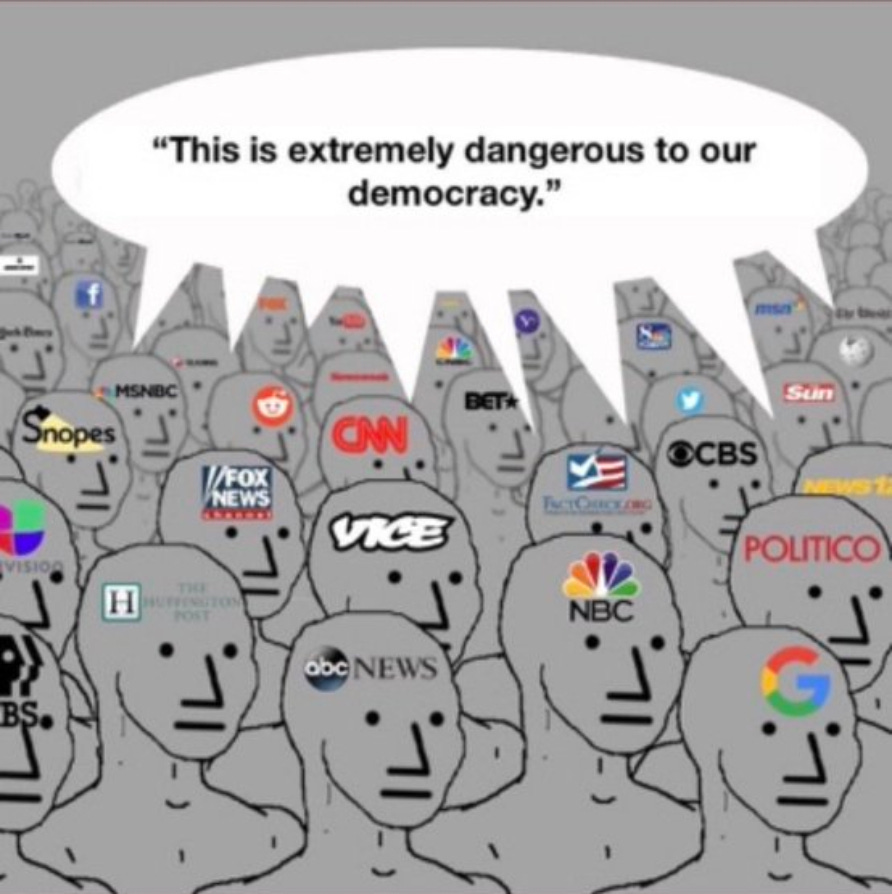
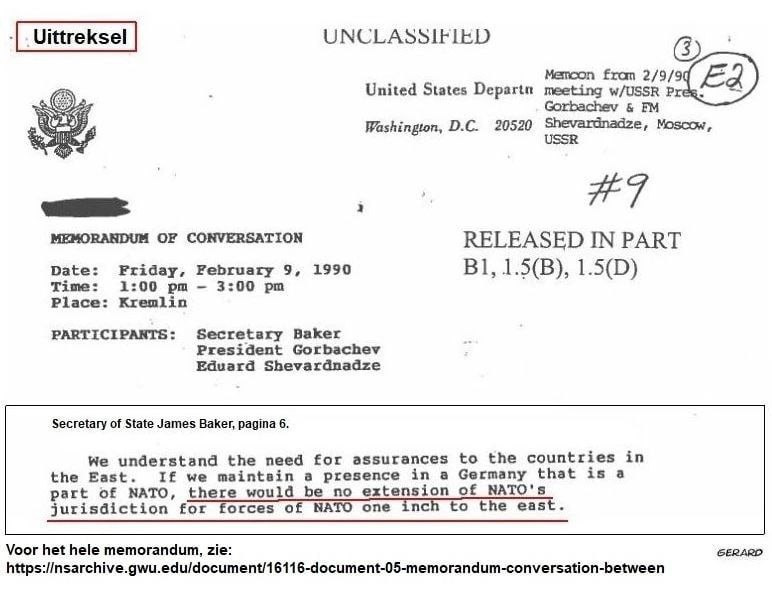
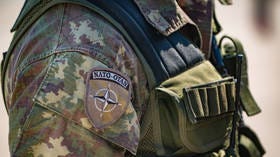
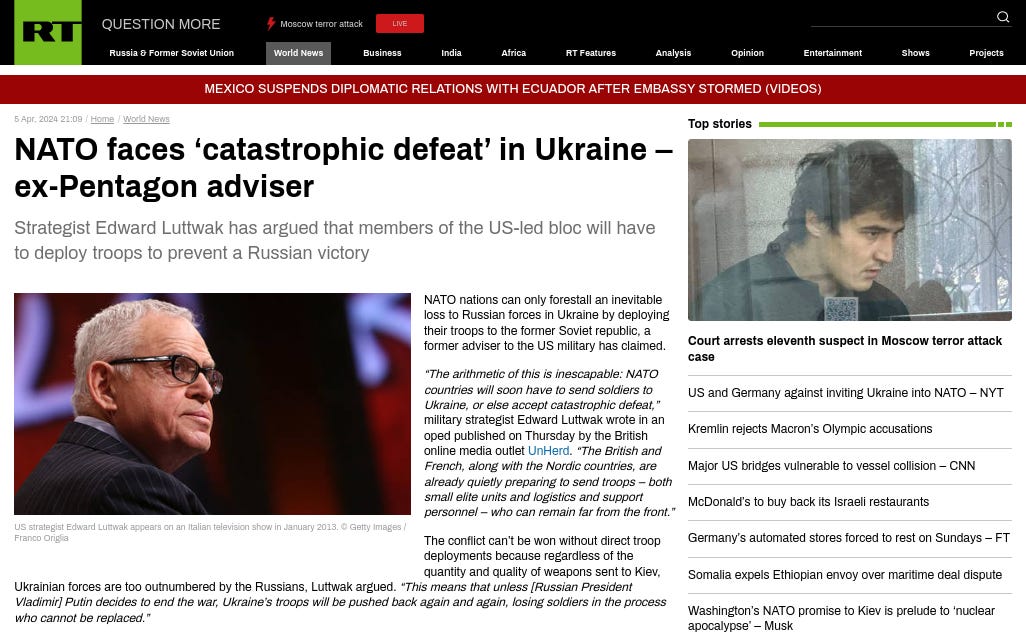
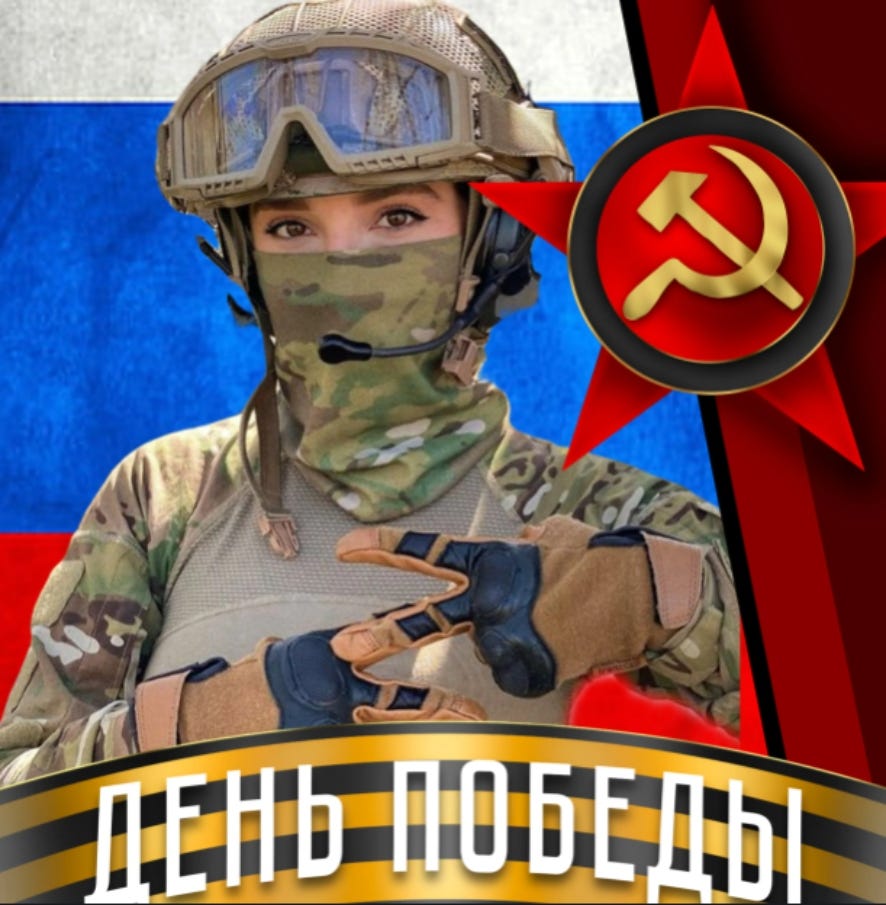
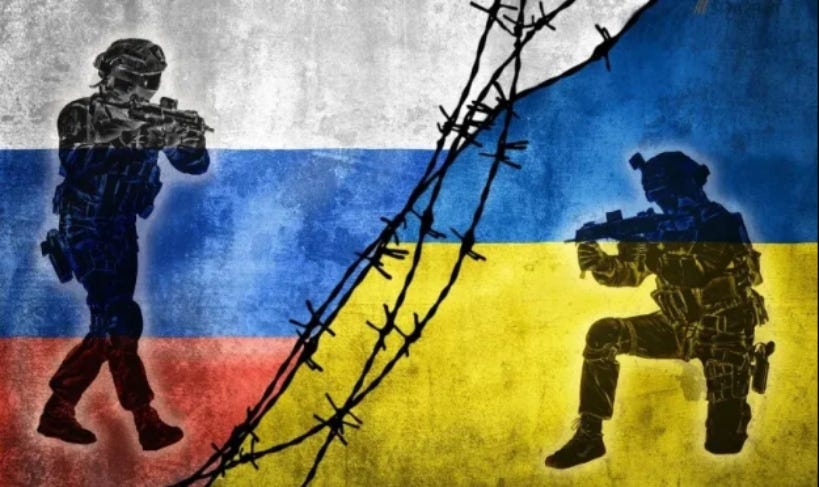
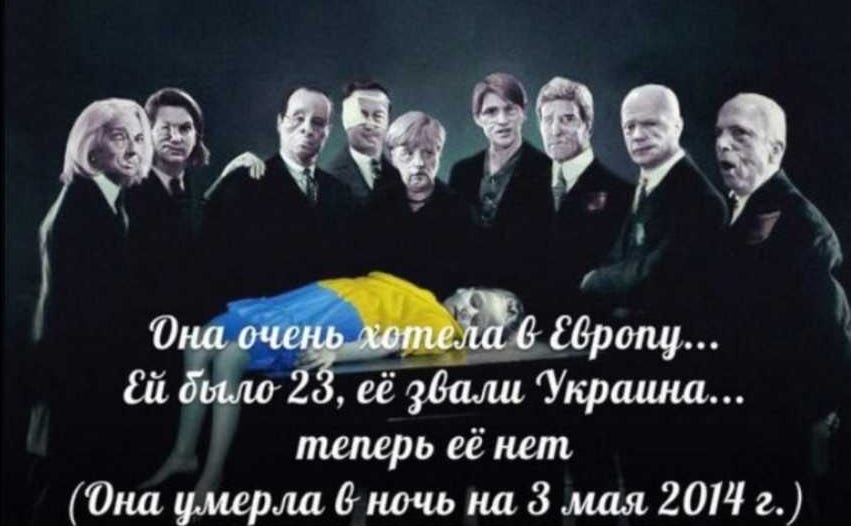
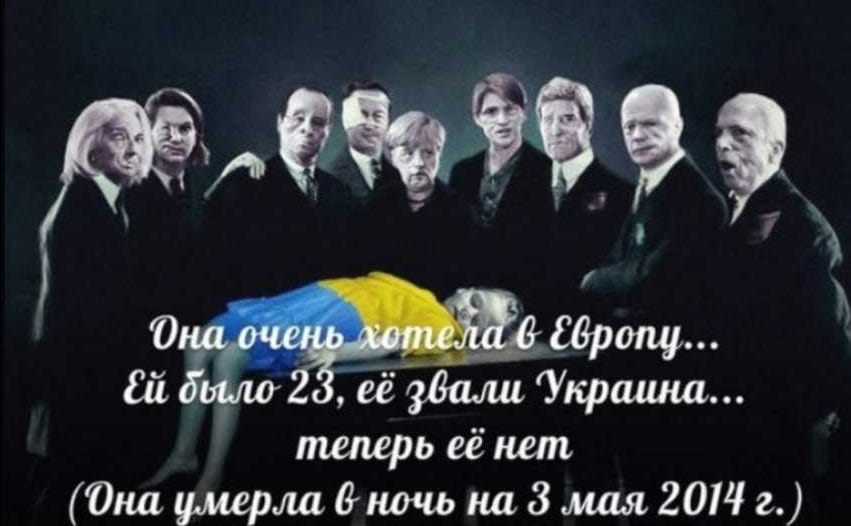
I remember that, during the discussion about how to react to the threat from Kiev. Lavrov did not come down in favor of military action. Unlike many others of similar geopolitical persuasion, I did not think it was impossible for Russia to intervene militarily in "Ukraine." Under certain conditions, such as an uptick in violence against the Donbas, an intervention would have been possible and justified. And so it did come to pass after attacks from Kiev showed a more aggressive posture..